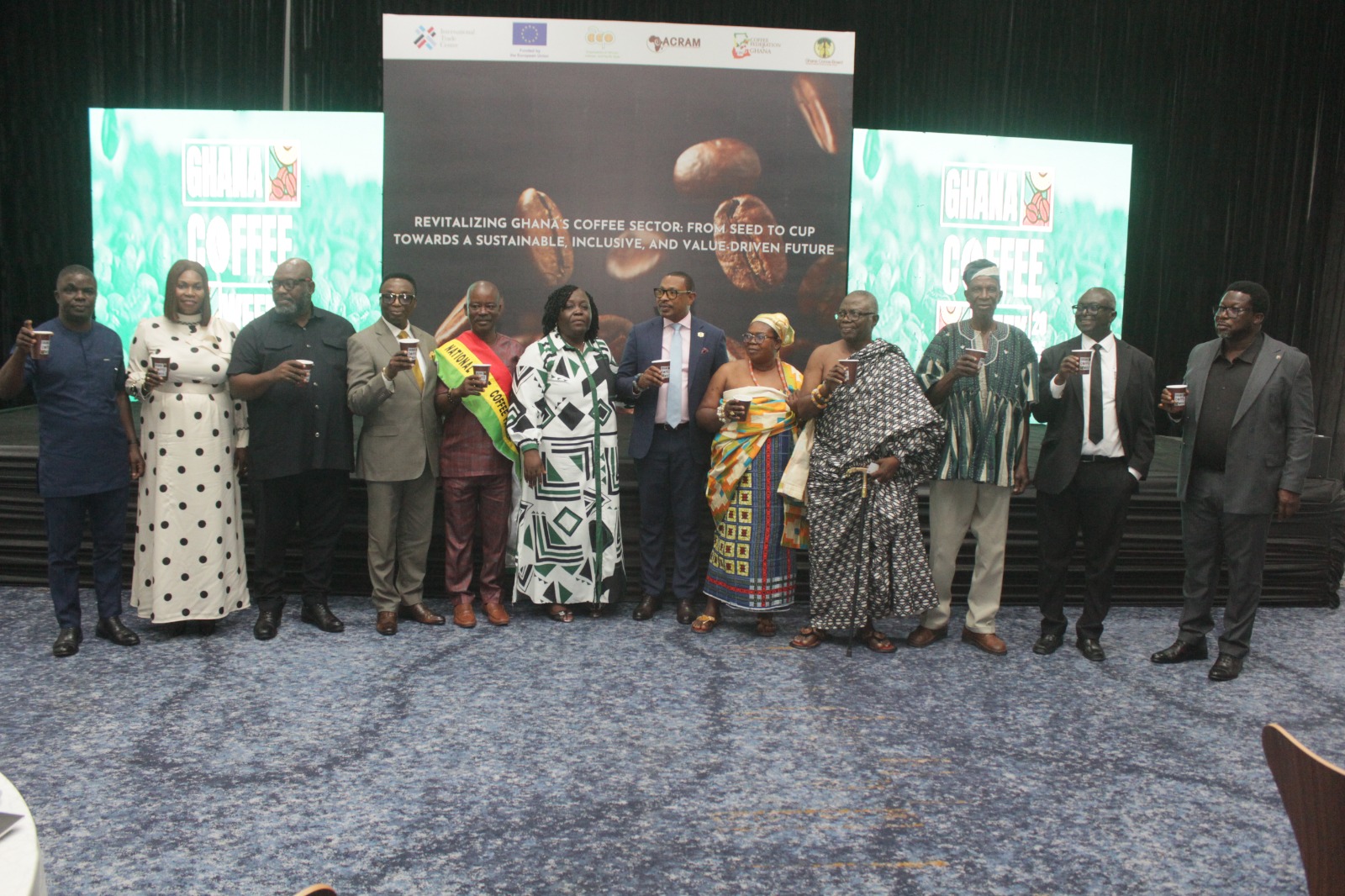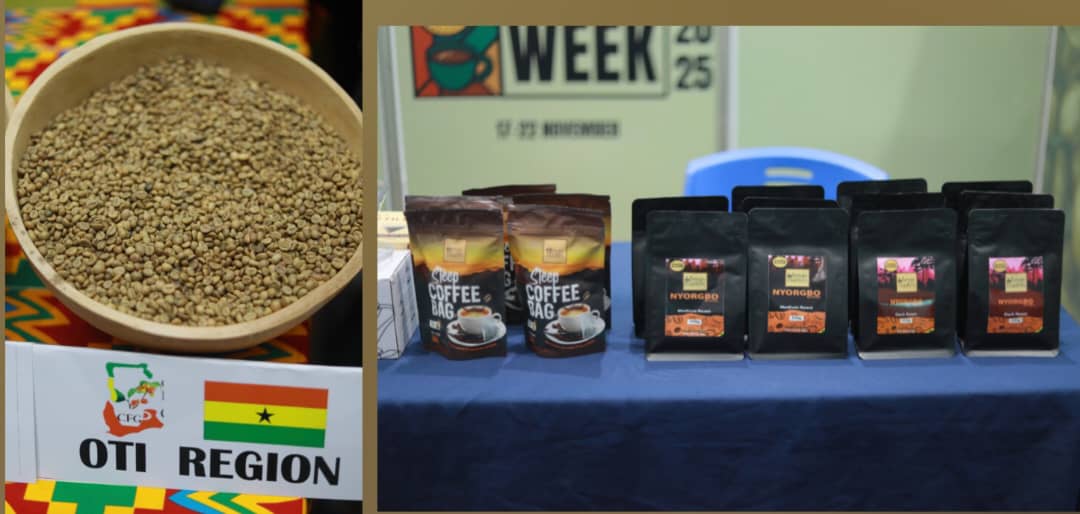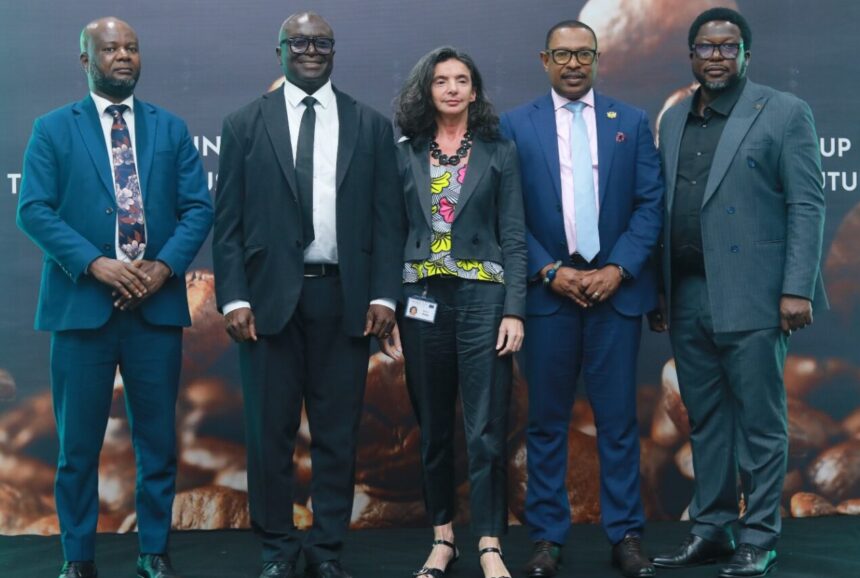The Coffee Federation of Ghana is calling for expanded government and private-sector support to strengthen the country’s coffee value chain, increase production volumes and position Ghana as a competitive player in the global coffee market.
The Federation made the appeal at the National Coffee Conference held in Accra as part of activities marking this year’s Coffee Week celebration.
Ghana currently produces about 37,000 tonnes of coffee annually, mostly from smallholder farmers. Although production remains relatively modest, sector players insist the industry holds significant untapped potential. President of the Coffee Federation, Samuel Adimado, stressed that Ghana has the capacity to dramatically increase the supply of planting materials, an essential step toward expanding cultivation.

“We need to move into more volumes like how we do cocoa. Cocoa will do over 55, 60 million seedlings. I think coffee can do 10 million seedlings and above,” he said.
“Our members have secured land banks and want to invest in plantations, but every farmer I met asked for more planting material. My appeal to government, COCOBOD and our regulators is that we need more policy frameworks, enabling environments and international partnerships to support seedling production.”

Representing the 24-hour Economy Secretariat, Dr. Ishmael Nii Dodoo, Head of Innovations, Partnerships and Markets, proposed a strategic partnership to support the sector in meeting international market requirements. He encouraged the development of what he described as a “coffee corridor” to guide large-scale cultivation within key agroecological zones.
“When you create that coffee corridor, you can identify strategic geographic locations to grow coffee at scale and meet the quality standards investors and development partners demand,” he said.
“Meeting environmental norms and global certifications, from halal and ISO standards to regional market requirements, is essential so that when coffee comes from Ghana, it can never be ignored.”

The European Union’s Head of Cooperation, Silvia Severi, urged stakeholders to focus on value addition to make the sector more competitive and profitable. She noted rising local enthusiasm and the growing culture of cafés, specialty roasters and coffee-focused small businesses.
“Coffee is gaining momentum, from campus cafés to a new generation of roasters and baristas,” she said. “Coffee Week is more than a celebration—it encourages stakeholders to think beyond production and embrace roasting, branding, café culture and export readiness.”
This year’s Coffee Week is themed “Revitalising Ghana’s Coffee Sector from Seed to Cup Towards a Sustainable, Inclusive and Value-Driven Future.” Activities include a coffee exhibition at Nyaneba Estate in Osu and a media training programme to help journalists report more effectively on the industry.
By Ebenezer De-Gaulle






